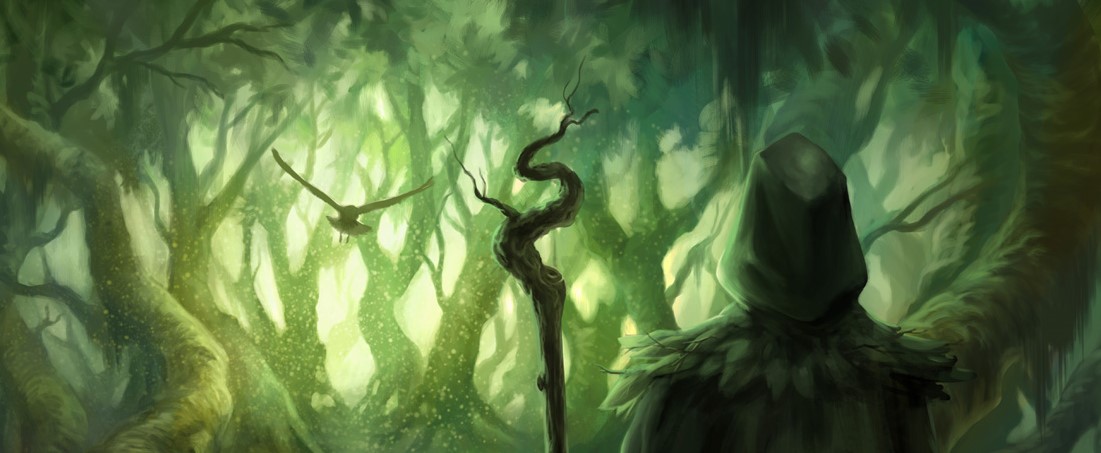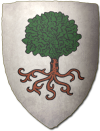House Cellydon

| House | |
| Information | |
|---|---|
| Founder: | Unknown |
| Family tree: | Click here |
| Family feature: | Thick Hair |
| House traits | |
| Traits: | Men: Lustful, Women: Honest, Spiritual, Both: Suspicious |
| Passions: | Love Family |
| Skills: | Faerie Lore, Hunting |
| Statistics: | CON |
| Heraldry | |
| Blazon: | Argent, an oak proper |

| |
Cellydon is an ancient family harking back to the tribes and chieftain-kings of old Durotriges from before Salisbury as a county was formed.
The old family tribe originated at Tisbury, and was spread out over what today is the Hillfort Hundred.
Heads of family
- Unknown - 40 Cadvridoc, last king of the Cellydon
- 41 - unknown Cadfael, the crownless
- unknown-381 Cynon the Hunter
- 381-439 Cadlew
- 439-463 Cadwallon
- 463-484 Corwyn
- 484-present Cadry
Noteworthy members
- The ancient warrior (name unknown)
- The elven princess, the spirit of the forest
- Cadvridoc, Last king of the Cellydon family, forced to bend the knee to the romans
- Cynon, the Hunter (best hunter in Salisbury)
- Cadwallon, the “The Oak of Tisbury”
- Cadry, "The Strange"
Members
Family traits
Distinctive Feature:
Thick Hair
Men’s trait:
Faerie Lore +5
Cellydon men have been thought since they were young what to fear in the Forest Gloom.
Women’s gift:
+1 child birth table
Cellydon women are notoriously fertile.
The women sometimes have an affinity for magic. (1 on D20, roll at birth)
Family ability:
Hunting +5
If you want to eat, you learn to hunt, whether you are a boy or a girl.
Passion:
Love Family: +1
Family comes first.
Traits: (men)
Lustful +1
Cellydon men have a well-known lust for women.
Traits: (women)
Honest +1
The Cellydon women are unusually honest for being women.
Traits: (both)
Suspicious +1
Cellydon aren’t that used to stranger in their lands.
Spiritual +1
The land and the gods are one and the Cellydons have always been one with the land
Statistics:
+1 CON
Cellydon are tough as iron nails.
Heraldry
The Cellydon heraldry is a representation of ancient symbols tightly tied to the Cellydon house. The shield is a silver shield, with a green tree spread out.
Cellydon heraldry has been around since the Battle of Carlion, where Cadwallon was given a shield for his family as a reward for capturing the Irish cheiftan Niall's banner on the battlefield. The shield is inherited by the eldest son always, and cannot be modified in anyway by siblings, children or kin.
If you ask the Cellydon's the shield is nothing new, although heraldry is. The oak has been a symbol in the family for as lon as anyone can remember, maybe as far back as before the roman even came to Britain. Nowaday a large oak standing near Tisseburi hill is tightly connected to the shield, but the symbol seems a lot older than the oak could possibly be. The tree also is said to represent the familiy's roots, strength and growth. There are rumours that the tree has deeper meanings, tied to secrets deep in the forest. But no one in the family knows.
History
Before the coming of the romans, many tribal kings made up the durotriges tribe. Sometimes they warred on eachother but when outside threats encroached, they would usually come together to repell the enemy. One of these small tribal kingdoms existed around the western parts of the forest of gloom And the Cellydon family had been the ruling family in these lands since ancient times. When the Romans came to Britain the old tribes where forced to submit to the rule of mighty Rome. Soon most of the island’s natives had adapted the Roman way of living. But not all Britons forgot their old languages, their old gods and their old customs. In the countryside, most things remained the same. In the western parts of the forest of Gloom lived a clan of warriors who proudly held on to the old ways. They called them selves Cellydon, and they saw them selves as the rightful heirs to the land they lived on. Even though they could no longer call themselves kings they were at least chieftains and have been so since that time. But they never forgot where they came from.
The tribe’s home was centred on an old burial-hill in Nadder Valley. Tisbury, or Tissebury as it was then called since it was the burial place of old. It had been in the families hands for as long as could be remembered. It was said that an ancient warrior, made his home here after fleeing Sarum Rock. According to the old tales in the family, the warrior found an elven princess (some versions of the tale she was a goddess or a priestess, in others an fox or a wolf). She promised him that whomever could defeat her in single combat could lay with her on the hill. He fought and lost the combat (a tale still told today to some of the children, never to fight for the right to have sex with a woman. It’s a battle that cannot be won.) but in her cunning the she-elf offered to keep her promise, as long as he layed on his back, let her take him and to promise to always return to her when she called. The family stories say that the children of that night are the Cellydon tribe. The warrior built a home on the hill, and with his new family and old warrior friends he layed grounds to the new tribe.
Roman period
During the Roman occupation, Cellydon has paid tribute to the Romans, who left them alone in the deep forests. When the Roman forces where pulled to back, and the Britons told to tend to their own devices, Britain was beset from all angles by Irish, Saxons and Picts. In this dark moment, the warriors of Cellydon chose to leave the forests and venture out to seek fortune.
Cadwallon rules the family
One of those that stood by Constantin to protect Britain was the barbarians led by a certain Cadwallon, Cellydon’s current chieftain and descendant to Cadlew and Cynon. He swore Constantin loyalty in 431, and served him until Constantine was murdered in 440. As a reward for his loyalty in combat in Battle of Carlion he was given his old families lands under the local warlord Rudderch . The family had always considered the lands to be theirs, but now they would be accepted by others.
Uther period
Cadry rules the family
I 484 Cadry resumed lordship over Tisbury manor but it wasn’t until the death of his uncle in 486 that he formally resumed leadership of the Cellydon family. The family still keeps to their tribal roots and consider the fact that the family is descended from the old kingly bloodline of the Durotriges to be far more important that modern day titles. In Cadry’s time several old practices that had long been dormant were revived once again such as the bloody rites connected to bloodfeuds.
Anarchy period
Being one of the few who survived the infamous feast of St Albans, Sir Cadry kept ruling his family. Having lost both many friends and a brother, he became more reclusive and set in his ways. He focused his influence on securing his family's prominenece in the County that now found itself without a king. Many young Cellydon men became both squires and knights during this period.



